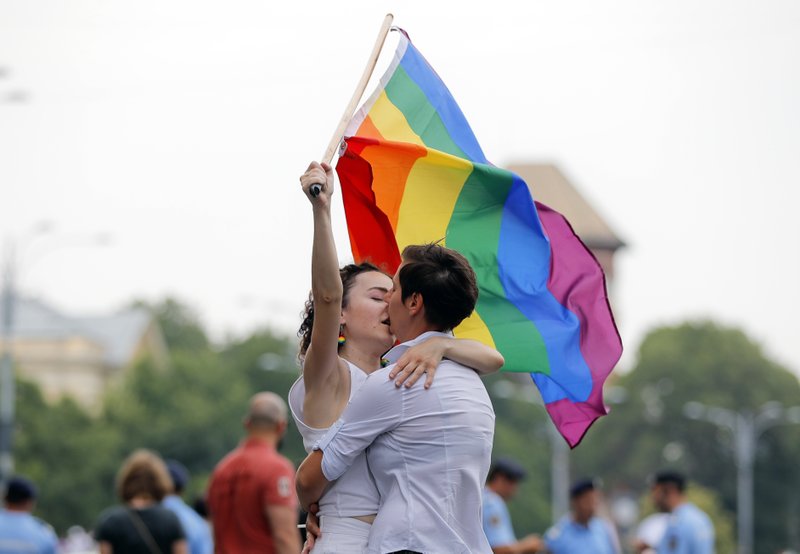BUCHAREST, Romania -- Romanians have begun two days of voting on a constitutional amendment that would make it harder to legalize same-sex marriage. The vote has raised concerns that nontraditional families will be discriminated against.
A conservative group initiated the referendum being held Saturday and today, and the influential Romanian Orthodox Church is backing it.
The proposed amendment would revise the definition of family in the Constitution of Romania to make marriage "a union between a man and a woman" instead of "a union between spouses."
Romanian law already prohibits same-sex marriages.
Opponents say the new constitutional language is a mean-spirited attempt to make lesbian, gay, bisexual and transgender people feel more like second-class citizens and also could marginalize households led by single parents or unmarried couples raising children.
The referendum requires a 30 percent turnout of registered voters to be valid. The proposed change would prevent any attempt to legalize same-sex marriage through legislation.
Dressed in white robes and a white miter, Patriarch Daniel cast his ballot Saturday morning but didn't address the issue of marriage. However, he encouraged Romanians to vote, calling it: "a right, an honor and a blessing."
Leader of the ruling Social Democratic Party Liviu Dragnea said Romania should decide how it wanted to run its own affairs and praised "the traditional family, a man and a woman who have children," either naturally or through adoption.
"For years, others have been telling us how we should live," he said after voting. "Now is the moment for us to decide for ourselves what kind of society and country we want and how we want to live in our country."
However, he added that Romania should create "a legal framework for same-sex partnerships."
Prime Minister Viorica Dancila earlier said that "I voted for the values in which I believe," adding that "it is our civic duty to express our views."
The vote came about after the Coalition for Family submitted a petition with 3 million signatures proposing for the constitution to be amended.
The group said it was concerned young Romanians were learning about so-called nontraditional family arrangements in school.
Gay-rights groups say the constitutional revision could encourage homophobia by further promoting the view that only opposite-sex marriages are legitimate and same-sex relationships are unworthy of recognition or protection.
At a rally last week in southern Romania, Orthodox Bishop Sebastian Pascanu told believers that homosexuality was an "abnormality that first appeared in Western countries."
"This abnormality needs therapy, treatment rather than special laws like the ones that have different sexual orientations would like to have."
In the village of Plopeni north of Bucharest, resident Elena Moldoveanu said her religious beliefs will lead her to approve amending the constitution, "because this is how it should be, and this is how God made us."
But others, like Marcel Badea, an electrician who lives in a southern Romanian village on the River Danube, said he'd boycott the vote.
"I am [already] a husband, a father and grandfather. I have nothing to vote for," he said.
"I don't need this referendum. Even if I vote 'no,' I will help the referendum get the turnout it needs."
Information for this article was contributed by Nicolae Dumitrache and Olimpiu Gheorghiu of The Associated Press.
A Section on 10/07/2018

